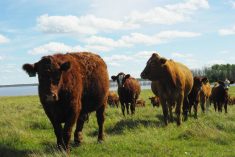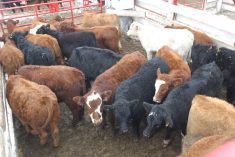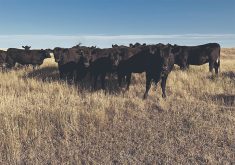Manitoba’s African swine fever survival plan is being established now, before any sign of the disease shows up in North America.
Veterinary, industry, government and farmer representatives and officials know they won’t have time for delay if it pops up on the Prairies.
“It’s not just about managing diseased animals,” said Dr. Scott Zaari, Manitoba’s chief veterinary officer.
“It’s about the healthy herd and what happens to them when we don’t have a market.”
ASF, while not a threat to human health, has drastic impacts on places it appears. Usually a country finding cases is completely cut off from world markets. In countries that consume almost all their own pork that can be disruptive, as in China today.
Read Also

Beef check-off collection system aligns across the country
A single and aligned check-off collection system based on where producers live makes the system equal said Chad Ross, Saskatchewan Cattle Association chair.
But Canada exports about 70 percent of its production, and the situation is even more critical in Manitoba, where there is a big production base but only a tiny population.
Pigs can’t just be held back and kept on farm until the situation calms down, as can happen with many cattle farms and feeding operations. If pigs can’t be shipped when they hit market weight, most barns almost immediately run out of room to house them.
Dealing with euthanasia and disposal is just one element that needs to be sorted out before any disaster strikes.
Transportation protocols, monitoring and reporting, human movement controls and communications are all elements that are being worked on today.
Meanwhile, government and industry are trying to assess the risks and management methods needed to deal with the feral pig herd, as well as the risks that small outdoor pig herds hold for farmers.
Zaari said he didn’t expect commercial farms to become infected from wild pigs initially, but that smallholder pig herds could become infected through feed or people and then transfer disease into the wild herd.
That needs to be prevented, he said.
Advanced planning is well underway, Zaari said, something he credited to better than usual industry-government co-operation.
“It’s not very common for many provinces to have that nice government-industry partnership, but in this case it’s a necessary end to approach such a huge endeavour.”

















